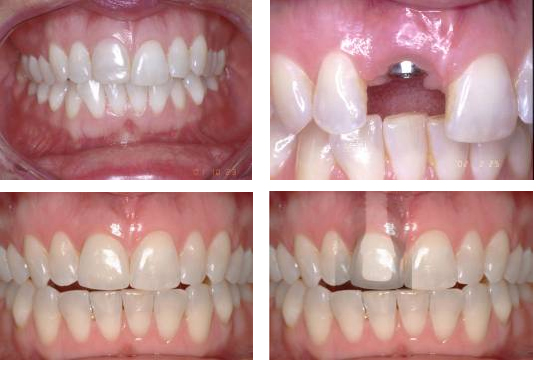
Today, the preferred method of tooth replacement is a dental implant. They replace missing tooth roots and form a stable foundation for replacement teeth that look, feel and function like natural teeth. Dental implants also help preserve the remaining bone by providing the stimulation previously provided by the natural tooth roots.
Implants are made of a bio-compatible material called titanium, which cannot decay. One advantage of implants is that they stimulate bone growth, and thus, prevent future bone loss.
A careful evaluation of your dental and medical health history must be made to determine whether you can safely have a tooth removed. If you're healthy enough to have a tooth extracted, you're healthy enough to receive dental implants.
Most patients report very little discomfort and that they were much more comfortable following the procedure than they anticipated. Anesthesia and patient sedation are used to eliminate any discomfort during the procedure.
Your dental practitioner will guide you on the proper care and maintenance of your new implants before, during and after the procedure. By following a regular routine of careful oral hygiene and regular checkups, your implants will look, function and feel great for many years to come.
This depends on your situation. Most patients can leave the office wearing some type of temporary prosthesis.
An implant, although made of metal, still requires continued care after placement. This includes patient home care and professional maintenance. The life of the implant varies with factors of patient health (diabetes, HIV, metabolic bone disease), patient habits (smoking, oral hygiene) and structural overload. It is impossible to predict exactly how long an implant will last, therefore it is impossible to predict or guarantee success. If an implant fails it may be replaced, however the prosthesis (overdenture/crowns) will need to be remade.

